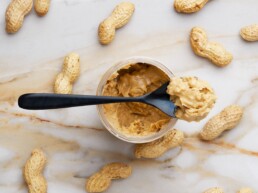Do you often wonder about the role carbohydrates play in our diet? Did you know that carbohydrates are fuel for your body or rather its a primary energy source? Are you curious about the different types of carbohydrates and how they impact our health? In this post, I’ll explore the world of carbohydrates, discussing their functions, the different types, and the importance of consuming high-quality carbohydrate sources. In addition, I’ll also provide some tips on how to optimise your carbohydrate intake.
What Are Carbohydrates?
Carbohydrates are essential macronutrients that serve as our body’s primary source of energy. They are broken down into glucose, which our body uses for various functions, including fueling our muscles, brain, and central nervous system. But did you know that carbohydrates come in various forms, and not all carbohydrate sources are created equal? Let’s delve into the different types of carbohydrates and their impact on our health.
Types of Carbohydrates
Carbohydrates can be classified into three main categories: sugars, starches, and fibers. These can be further classified as simple or complex carbohydrates based on their molecular structure:
- Simple Carbohydrates: These are sugars, such as glucose, fructose, and sucrose, that are quickly broken down and absorbed by our body. Simple carbohydrates can be found in fruits, dairy products, and added sugars in processed foods. Are you aware of the different sources of simple carbohydrates in your diet?

- Complex Carbohydrates: These are starches and fibers that take longer to break down and provide a more sustained energy release. Complex carbohydrates can be found in whole grains, legumes, and starchy vegetables. How do you incorporate complex carbohydrates into your daily meals?
Functions of Carbohydrates in Our Body
Carbohydrates serve various functions in our body, including:
- Providing energy: Carbohydrates are our body’s primary source of fuel, powering our muscles, brain, and central nervous system.
- Supporting digestion: Dietary fiber, a type of carbohydrate, helps maintain a healthy digestive system by promoting regular bowel movements and preventing constipation.
- Regulating blood sugar: Carbohydrates are broken down into glucose, which our body uses to regulate blood sugar levels and maintain overall energy balance.
How do you ensure you’re consuming enough carbohydrates to support these vital functions?
The Importance of High-Quality Carbohydrate Sources
However, not all carbohydrate sources are created equal, and it’s essential to consume high-quality carbohydrates for optimal health. High-quality carbohydrates are typically rich in fiber, vitamins, and minerals and have a lower glycemic index. These carbohydrates are found in whole, unprocessed foods such as whole grains, fruits, vegetables, and legumes. What high-quality carbohydrate sources do you include in your diet?
The Impact of Overconsumption of Simple Carbohydrates
Most importantly, excessive intake of simple carbohydrates can cause several metabolic issues, including:. Here is a list of metabolic issues to look out for:
- Insulin Resistance: Consuming large amounts of simple carbohydrates can cause blood sugar levels to spike rapidly, leading to increased insulin production. Over time, this can result in insulin resistance, a condition in which cells become less responsive to insulin, increasing the risk of type 2 diabetes.
- Weight Gain and Obesity: Simple carbohydrates are often calorie-dense and lack essential nutrients, leading to weight gain and, eventually, obesity. Obesity is associated with numerous health issues, including heart disease, stroke, and certain types of cancer.
- Metabolic Syndrome: Overconsumption of simple carbohydrates can contribute to the development of metabolic syndrome, a cluster of conditions that includes high blood pressure, high blood sugar, and abnormal cholesterol levels. Metabolic syndrome increases the risk of heart disease, stroke, and diabetes.
Which carbohydrates get us into trouble?

Many popular snacks and drinks are high in simple carbohydrates, contributing to overconsumption and the associated metabolic issues. Here are some examples:
- Soda and Sugary Drinks: Beverages like soda, energy drinks, and fruit juices often contain large amounts of added sugar. Healthier alternatives include water, herbal tea, or infused water with fresh fruits and herbs.
- Candy and Sweets: Candy bars, gummy bears, and other sweets are loaded with simple sugars. Opt for healthier snacks like fresh fruit, unsweetened yogurt, or a small handful of nuts.
- Pastries and Baked Goods: Cookies, cakes, and pastries are not only high in simple carbohydrates but also unhealthy fats. Choose whole-grain or low-sugar options, or try homemade treats with natural sweeteners like honey or maple syrup.
- Refined Grains: Did you know that white bread, pasta, and rice are stripped of their fibre and nutrients, leaving them high in simple carbohydrates? Opt for whole-grain alternatives like whole-wheat bread, brown rice, or whole-grain pasta.
- Breakfast Cereals: Many breakfast cereals are high in added sugar and refined grains. Look for cereals made from whole grains with little to no added sugar, or try a bowl of oatmeal with fresh fruit and a sprinkle of cinnamon.
Therefore, by being aware of the sources of simple carbohydrates and making healthier choices, you can reduce the risk of metabolic issues and support your overall health. What are your thoughts on the impact of overconsumption of simple carbohydrates and the healthier alternatives we’ve discussed?
Tips for Optimising Carbohydrate Consumption

Now that you know the different types of carbohydrates and their impact on our health, let’s explore some tips on how to optimise your carbohydrate consumption:
- Prioritise Complex Carbohydrates: Focus on consuming complex carbohydrates from sources like whole grains, legumes, and starchy vegetables. These carbohydrates provide sustained energy and are rich in fiber, vitamins, and minerals. How can you diversify your carbohydrate sources?
- Limit Added Sugars: Be mindful of added sugars in processed foods and beverages, and limit your consumption of these simple carbohydrates. Are you aware of the hidden sugars in some of your favorite foods?
- Choose Whole, Unprocessed Foods: Opt for whole, unprocessed carbohydrate sources like fruits, vegetables, and whole grains. These foods are nutrient-dense and provide a wide range of health benefits. How can you incorporate more whole foods into your diet?
- Balance Your Carbohydrate Intake: Distribute your carbohydrate intake evenly throughout the day to maintain consistent energy levels and support overall health. How can you balance your carbohydrate intake across meals?
- Pair Carbohydrates with Protein and Healthy Fats: Combining carbohydrates with protein and healthy fats can help stabilize blood sugar levels and keep you feeling satisfied for longer. How do you create well-balanced meals?
- Be Mindful of Portions: While carbohydrates are essential for our health, it’s important to consume them in moderation. Be mindful of portion sizes, especially when it comes to calorie-dense carbohydrate sources. How do you manage portion sizes in your meals?
- Listen to Your Body: Carbohydrate requirements can vary based on factors such as age, gender, activity level, and overall health. Pay attention to your body’s needs and adjust your carbohydrate intake accordingly. How do you listen to your body’s signals when it comes to carbohydrate consumption?
The Big Carbohydrate Picture
In conclusion, carbohydrates play a crucial role in our overall health and well-being, providing energy, supporting digestion, and regulating blood sugar levels. All carbohydrates are not evil but an overconsumption of white, fast-acting carbohydrates can certainly take you down the road to metabolic disturbances like insulin resistance and prediabetes. By prioritising high-quality carbohydrate sources, focusing on complex carbohydrates, and balancing your carbohydrate intake, you can fuel your body for optimal health. Remember to choose whole, unprocessed foods, limit added sugars, and listen to your body’s needs.
SHARE

Madhavi Shilpi
Nutritionist
Prediabetes Coach
Related
Proteins: Building Blocks for a Stronger You
Are you curious about the role proteins play in our diet? Do you wonder…
Fats: A Balanced Perspective
Fats are good for us. Fats are bad for us. The argument rages on. Is there a…
Probiotic-rich foods: 10 health benefits
Probiotics are live microorganisms that are beneficial for our health when…
Nut Butters: Are they healthy for you?
Nut butters are finding a fervent following amongst health food enthusiasts…
Which diet should you follow?
There are so many diets out there! How do you figure out which diet you…
Nutrient focus: Vitamin D
Vitamin D: The Sunshine Vitamin and its Importance to Your Health Vitamin D is…
What is Prediabetes?
Have you been diagnosed with Prediabetes? Are you wondering what it actually…








